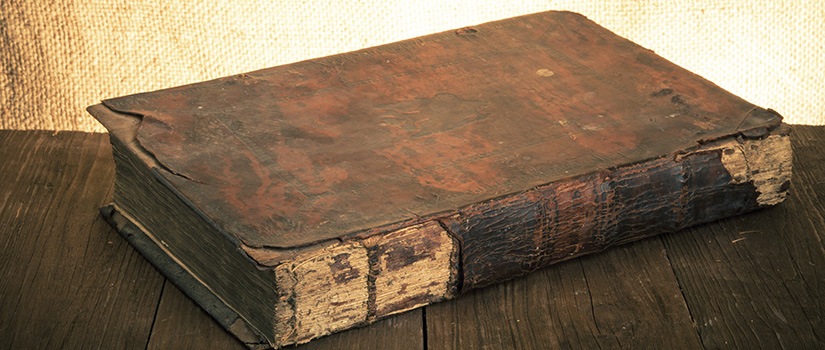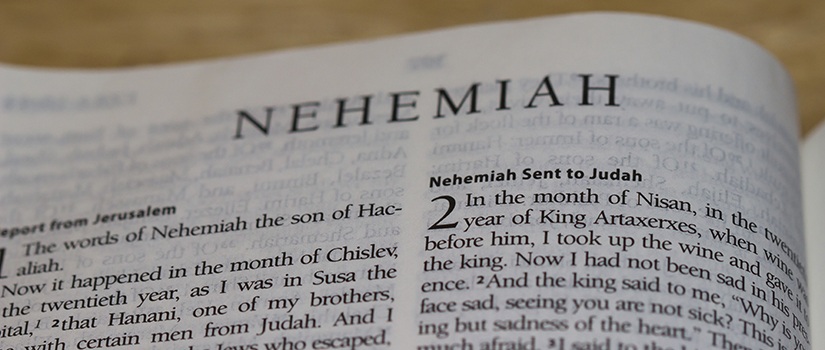A Visit To A Service In The Church At Corinth
By, James L. Thornton
A Picture Of A Pauline Church, History Without and Within.
A visitor to a foreign city walks through the streets, guide-book in hand, looking at monuments, churches, public buildings, and the outsides of the houses, and in this way is supposed to be made acquainted with the town; but, on consideration, he will find that he has scarcely learned anything about it, because he has not been inside the houses.
He does not know how the people live—not even what kind of furniture they have or what kind of food they eat—not to speak of far deeper matters, such as what they love, what they admire and pursue, and whether they are content with their lot.
In reading history one is often at a loss in the same way. It is only the outside of life that is made visible. It is as if the eyes were carried along the external surface of a tree, instead of seeing a cross-section of its substance. The pomp and glitter of the court, the wars waged, and the victories won, the changes in the constitution and the rise and fall of administrations, are faithfully recorded.
But the reader feels that he would learn far more of the real history of the time if he could see for one hour what was happening beneath the roofs of the peasant, the shopkeeper, the clergyman, and the noble. And even in Scripture history, there is the same difficulty.
In the narrative of The Acts of the Apostles, we receive thrilling accounts of the external details of Paul’s history; we are carried rapidly from city to city and informed of the incidents which accompanied the founding of the various churches.
But we cannot help wishing sometimes to stop and learn what one of these churches was like inside. In Pamphylia (Acts 13:13), or Iconium (Acts 13:51), in Thessalonica (Acts 17:1) or Berea (Acts 17:10), how did things go on after Paul left? What were the Christians like, and what was the expression of their worship?
Fortunately, it is possible to obtain this interior view of things. As Luke’s narrative describes the outside of Paul’s career, so Paul’s own Epistles permit us to see deeper into its features. They rewrite the history on a different plane. This is especially the case with those Epistles written at the close of his third journey, which cast a flood of light back upon the period covered by all his journeys.
In addition to the three Epistles already mentioned as having been written at this time, there is another belonging to the same part of his life—The First Epistle to the Corinthians—which may be said to transport us, as on a magician’s carpet, back over two thousand years, and stationing us in mid-air above a great Greek city, in which there was a Christian church, and to take the roof off the meeting-house of the Christians and permit us to find an inconspicuous place and see and hear what was going on within.
A Christian Gathering in the Church at Corinth:
It is a strange spectacle we witness from this vantage point. It is Sabbath evening, but of course, the heathen city knows of no Sabbath. The day’s work at the busy seaport is over, and the streets are thronged with debauched revelers intent on a night of pleasure for it is one of the wickedest cities of that wicked ancient world. Hundreds of merchants and sailors from foreign parts are lounging about.
A gay young Roman, who has come across the narrow strip of land to this Paris for a bout of indulgence in sensual pleasure, drives his light Chariot through the streets. If it is near the time of the annual games, there are groups of boxers, runners, charioteers, and wrestlers, surrounded by their admirers and discussing their chances of winning the coveted crowns.
In the warm genial climate old and young are out of doors enjoying the evening hour, while the sun, going down over the Adriatic Sea, is casting its golden light upon the palaces and temples of the wealthy city.
Meantime the little company of Christians has been gathering from all directions to their place of worship; for it is the hour of their assembly. The place of meeting itself does not rise very clearly before our view. But at all events it is no gorgeous temple like those by which it is surrounded; it has not even the pretensions of the neighboring synagogue. It has no stain glass windows or tall steeple to make it stand out from other structures around it. It may be a large room in a private house or the warehouse of some Christian merchant cleared for the occasion.
Glance around the benches and look at the faces. You at once discern one marked distinction among them; some have the peculiar facial features of the Jew, while the rest are Gentiles of various nationalities, color, and hue; and the latter are the majority. But look closer still and you notice another distinction: some wear the ring which denotes that they are free, while others are slaves; and the latter predominate. There were hundreds of thousands of slaves in the city of Corinth.
Here and there among the Gentile members there is one of the regular features of the born Greek, perhaps shaded with the pale thoughtfulness of the philosopher or distinguished with the self-confidence of wealth; but “not many great, not many mighty, not many noble,” are there; the majority belong to what in this pretentious city would be reckoned “the foolish, the weak, the base, the despised things of this world;” they are slaves, whose ancestors did not breathe the crystal-clear air of Greece, but roamed in savage hordes on the banks of the Danube or the Don.
But we observe one thing besides on all the faces present—the terrible traces of their past life. In a modern Christian congregation, one sees in the faces on every hand that peculiar cast of feature which Christian nurture, inherited through many centuries, has produced; and it is only here and there that a face may be seen in whose lines the tale is written of debauchery or crime.
But in this Corinthian congregation, these awful marks are written everywhere. “Know ye not,” Paul writes to them, “that the unrighteous shall not inherit the kingdom of God? Be not deceived: neither fornicators nor idolaters nor adulterers nor effeminate nor abusers of themselves with mankind nor thieves nor covetous nor extortioners shall inherit the kingdom of God. And such were some of you.”
Look at that tall, sallow-faced Greek; he has wallowed in the mire of the swine-pens. Look at that low-browed Scythian slave; he has been a pickpocket and a jail-bird. Look at that thin-nosed, sharp-eyed Jew; he has been a ruthless moneylender, cutting his pound of flesh from the gilded youth of Corinth.
Yet there has been a great change:
Another story besides the tale of sin is written on these countenances: “But ye are washed, but ye are sanctified, but ye are justified in the name of the Lord Jesus and by the Spirit of our God.” Listen, they are singing; it is the 40th Psalm: “He brought me up also out of a horrible pit, out of the miry clay, and set my feet upon a rock, and established my goings.” What aroused feeling they throw into the words, what joy overspreads their faces! They know themselves to be monuments of free grace and dying love.
The Services:
But suppose they now all are gathered; how does their worship proceed? There was this difference between their services and most of ours, that instead of one man conducting them—offering the prayers, preaching, and giving out the psalms—it seems that all the men present were at liberty to contribute their part.
There may have been a leader or chairman; but one member might read a portion of Scripture, another offer prayer, a third deliver an address, a fourth start a hymn, and so on. Nor does there seem to have been any fixed order in which the different parts of the service occurred; any member might rise and lead away from the company into praise or prayer or meditation, as he felt prompted.
This peculiarity was due to another great difference between them and us: the members were endowed with very extraordinary gifts. Some of them had the gift of working miracles, such as the healing of the sick. Others possessed a gift called the gift of tongues. It was a kind of rapturous utterance in which the speaker poured out an impassioned ecstasy in unknown tongues by which his religious feeling received both expression and exaltation.
Some of those who possessed this gift were not able to tell others the meaning of what they were saying, while others had this additional power; and there were those who, though not speaking with tongues themselves, were able to interpret what the inspired speakers were saying.
Then again, there were members who possessed the gift of prophecy—a very valuable endowment. It was not the power of predicting future events, but a gift of impassioned eloquence, whose effects were sometimes marvelous: when an unbeliever entered the assembly and listened to the prophets, he was seized with uncontrollable emotion, the sins of his past life rose up before him, and, falling on his face, he confessed that God was among them of a truth.
Other members exercised gifts more like those we are ourselves acquainted with, such as the gift of teaching or the gift of management. But in all cases, there appears to have been a kind of immediate inspiration, so that what they did was not the effect of calculation or preparation, but of a strong present impulse.
These phenomena are so remarkable that, is narrated in a history, they would put a severe strain on Christian faith. But the evidence for them is incontrovertible: no man, writing to people about their own condition, invents a mythical description of their circumstances; and besides, They show with what mighty force, at its first entrance into the world, Christianity took possession of the spirits, which it touched.
Each believer received, generally at his baptism, when the hands of the baptizer were laid on him, his special gift, which, if he remained faithful to it, he continued to exercise. It was the Holy Spirit, poured forth without limit, that entered into the spirits of men and distributed these gifts among them severally as He willed; and each member had to make use of his gift for the benefit of the whole body.
After the services just described were over, the members sat down together to a love-feast, which was wound up with the breaking of bread in the Lord’s Supper; and then, after a fraternal kiss, they parted to their homes.
It was a memorable scene, radiant with brotherly love and alive without breaking spiritual power. As the Christians wended their way homeward through the careless groups of the heathen city, they were conscious of having experienced that which eye had not seen nor ear heard.
Abuses, Wrongs, and Irregularities:
But truth demands that the dark side of the picture be shown as well as the bright one. There were abuses and irregularities in the church, which it is painful to recall. They were due to two things—the background of the members and the mixture in the church of Jewish and Gentile elements.
These abuses and irregularities were noted by a member of the congregation named Chloes and reported them to the Apostle Paul, who we give credit for bringing this Church into existence, and having spent much time and effort to establish it, felt that it was his responsibility to correct the abuses and irregularities.
It is through the correspondence of Paul that we have the view of the things which were going on and the way Paul, through his wisdom and loving care, undertook to reform their way of worship. You can follow these steps in the 2 letters, possibly 3, Paul wrote to the Corinthian Church.
If it be remembered how vast was the change which most of the members had made in passing from the worship of the heathen temples to the pure and simple worship of Christianity, it was not surprising that their old life still clung to them or that they did not clearly distinguish which things needed to be changed and which might continue as they had been.
Yet it startles us to learn that some of them were living in gross sensuality and that the more rational defended this on principle. One member, apparently a person of wealth and position, was openly living in a connection which would have been a scandal even among heathens, and though Paul had indignantly written to have him excommunicated, the Church had failed to obey, claiming to misunderstand the order.
Others had been allured back to take part in the feasts in the idol temples, despite the involvement of drunkenness and revelry. They excused themselves with the plea that they no longer ate the feast in honor of the gods, but only as an ordinary meal, and argued that they would have to go out of the world if they were not sometimes to associate with sinners.
It is evident that these abuses belonged to the Gentile section of the church. In the Jewish section, on the other hand, there were strange doubts and scruples about the same subjects.
Some, for instance, revolted by the loose behavior of their Gentile brethren, had gone to the opposite extreme, denouncing marriage altogether and raising anxious questions as to whether widows might marry again, and whether a Christian married to a heathen wife ought to put her away, and other points of the same nature.
While some of the Gentile converts were participating in the idol feasts, some of the Jewish ones had scruples about buying in the market the meat which had been offered in sacrifice to idols and looked with disapproval on their brethren who allowed themselves this freedom.
These difficulties belonged to the domestic life of the Christians, but in their public meetings also there were grave irregularities. The very gifts of the Spirit were perverted into instruments of sin; for those possessed of the more showy gifts, such as miracles and tongues, were too fond of displaying them, and turned them into grounds of boasting.
This led to confusion and even uproar; for sometimes two or three of those who spoke with tongues would be pouring forth their unintelligible utterances at once, so that, as Paul said, if any stranger had entered their meeting he would have concluded that they were all mad. The prophets spoke at wearisome length, and too many pressed forward to take part, or completely take over the services.
Paul, in these letters, sternly rebuked these extravagances, insisting on the principle that the spirits of the prophets were subject to the prophets, and that therefore the spiritual impulse was no apology for the disorder.
But there were still worse things inside the church. Even the sacredness of the Lord’s Supper was profaned. It seems that the members were in the habit of taking with them to church the bread and wine, which were needed for this sacrament. But the wealthy brought abundant and choice supplies, and instead of waiting for their poorer brethren and sharing their provisions with them, began to eat and drink so gluttonously that the table of the Lord actually resounded with drunkenness and riot.
One more dark touch must be added to this sad picture. In spite of the brotherly kiss with which their meetings closed, they had fallen into mutual rivalry and contention. No doubt this was due to the diverse elements brought together in the church. But it had been allowed to go to great lengths. Brother went to law with brother in the heathen courts instead of seeking the arbitration of a Christian friend.
The body of the members was split up into four theological factions. Some called themselves after Paul himself. These treated the scruples of the weaker brethren about meats and other things with scorn. Others took the name of Apollonians from Apollos, an eloquent teacher from Alexandria, who visited Corinth between Paul’s second and third journeys.
There was the philosophical (learned) party; they denied the doctrine of the resurrection because it was absurd to suppose that the scattered atoms of the dead body could ever be reunited again.
The third party took the name of Peter, or Cephas, as in their Hebrew purism they preferred to call him. These were narrow-minded Jews, who objected to the liberality of Paul’s views.
The fourth party affected to be above all parties and called themselves simply Christians. Like many despisers of the sects since then who have used the name of Christian in the same way, these were the most bitterly sectarian of all and rejected Paul’s authority with malicious scorn.
Inferences:
Such is the checkered picture of one of Paul’s churches given in one of his own Epistles, and it shows several things with much impressiveness. It shows, for instance, how exceptional, even in that age, his own mind and character were, and what a blessing his gifts and graces of good sense, of large sympathy blended with conscientious firmness, of personal purity and honor, were to the infant church. It shows that it is not behind but in front that we have to look for the golden age of Christianity.
It also shows how perilous it is to assume that the prevalence of any sacred usage at that time must constitute a rule for all times. Everything of this kind was evidently at the experimental stage. Indeed, in the latest writings of Paul, we find the picture of a very different state of things, in which the worship and discipline of the church were far more fixed and orderly.
It is not for a pattern of the machinery of a church we ought to go back to this early time, but for a spectacle of fresh and transforming spiritual power.
This is what will always attract to the Apostolic Age the longing eyes of Christians; the power of the Spirit was energizing in every member, the tides of fresh emotion swelled in every breast, and all felt that the dayspring of a new revelation had visited them; life, love, light was diffusing themselves everywhere.
Even the vices of the young church were the irregularities of abundant life, for the lack of which the lifeless order of many a subsequent generation has been a poor compensation.
We only have to turn a few pages in our Bible and thirty or forty years later when Jesus spoke to the seven Churches of Asia, Revelation 3 & 4, to find that all these and more Abuses and Irregularities were in the Churches of that age, 95 AD.
By, James L. Thornton









